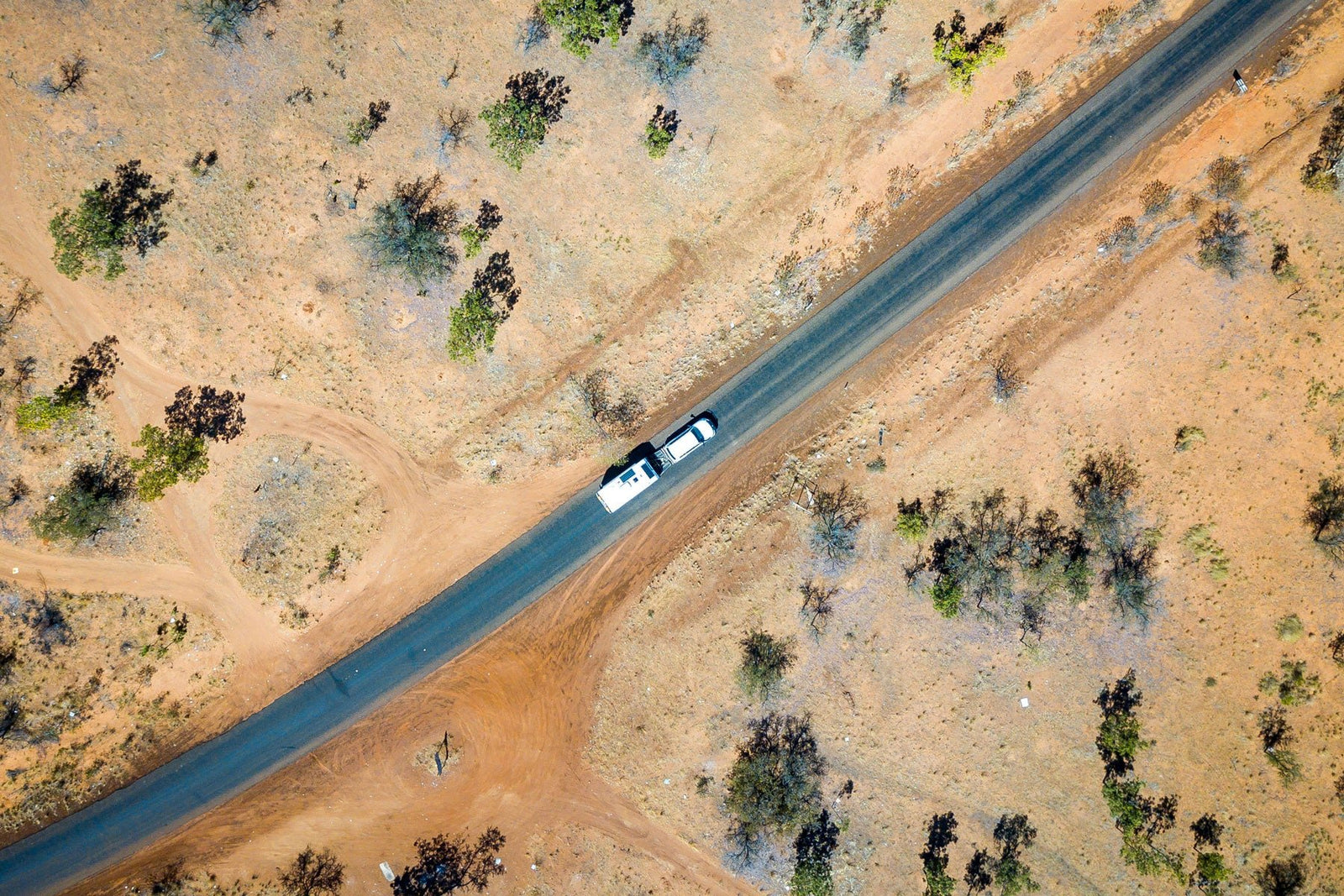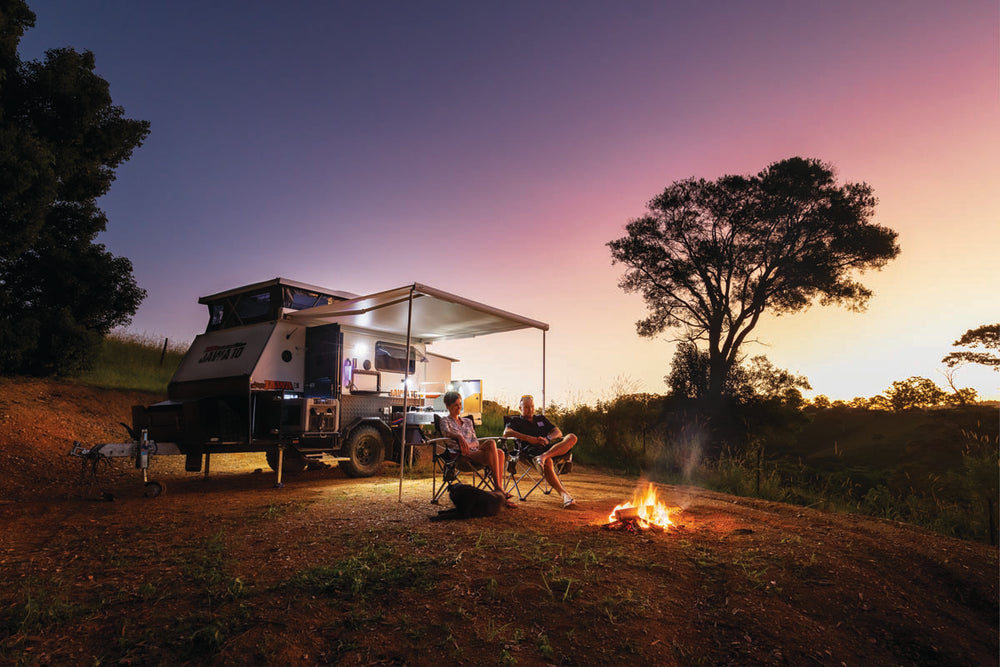Beginner Caravanning Guide - What To Do When You’re Starting Out

In 2021 we saw more brand-new caravanners on the road than have been seen in decades, as Australians unable to travel overseas begin to notice the incredible beauty and adventures to be had here at home.
This flood of new people is great, as the caravanning lifestyle has a lot to offer, but there can be a lot to consider when first starting out. So, here’s a beginner’s guide to make sure you get off on the right foot.
FIRST TIME BUYING
For a first time buyer, deciding on the right RV and right accessories can be incredibly difficult, especially when there are so many different styles and many models on the market. There are a few things to make it easier.
Firstly, you’ll want to decide on your style of adventure. Are you after a trip that takes you off the grid or are you just wanting to dip your toes in the lifestyle and instead go ‘glamping’? On top of this, are you after a long-term trip or a simply short getaway?
Your style of travel will help you determine your RV. For ‘glampers’, you might start looking at on-road caravans, hybrid campers with kitchens and a comfy bed, or motorhomes and campervans. If you’re taking your family with you, camper trailers with additional tents, larger family bunk vans or large six-berth motorhomes could be the way to go. Nomads, meanwhile, should look for caravans with extra batteries, water and solar capacity or hybrid vans, and serious off-grid warriors, should stick with purpose-built campers, hybrids and potentially full offroad vans.
With your RV in mind, the next things to think about are accessories. You will usually find the caravan you purchase will often have many accessories, meaning you won’t have to purchase as many. These can include hot water services, cooking equipment, portable clotheslines or even coffee machines — but be sure to really think about which accessories you need for life on the road.

When looking at adding accessories, why not consider going budget-friendly and purchasing some pre-owned accessories from other caravanners? These can include camp chairs, crockery, extra storage, tie-down pegs and shade cloths for privacy screens. While items such as these are fantastic to purchase pre-owned, it might be best to avoid the electric items, such as batteries and solar panels, and purchase these new as sometimes old technology can fail while on your trip.
Lastly, avoid over-buying when planning for your trip as it can be very easy to overspend, especially on accessories. Oftentimes, what you think you will need and what you actually do is very different, and you will often find that, on your next trip, you will only use three-quarters of what you purchased, so try to stick to the bare minimum. It might help to test your caravan on a short weekend away to see what you actually need before going on a longer, more remote adventure.
ETIQUETTE ON YOUR TRAVELS
With caravanning becoming increasingly popular, knowing how to be conscious and courteous while travelling is essential — this includes staying in caravan parks, especially with many turning more into resorts for young families. These parks vary in size, meaning there are often difficult areas to turn or park. Backing your van can be tricky and if you’re having trouble, don’t hesitate to ask the park manager. They will often be happy to help, rather than watch you trampling all over their garden.
Parks can often be crowded and since everyone is in close proximity, make sure to monitor the noise levels of your music and conversations to allow everyone to enjoy the serenity of travelling. In the same vein, try not to get too close to your neighbours’ vans to allow some privacy and some sense of separation.
While on the road, be courteous and understand that some vans may be heavier or lighter than yours, affecting their speed. A two-way radio is also important while travelling, with other caravanners and truck drivers appreciating you letting them know you will let them through. On most routes, you will use channel 40 or 29 on the Pacific Highway. Also, as you understand what it’s like to be stuck behind a caravan, make sure to slow down at the passing lanes and keep to the left to save aggravation and accidents.

If out on the road, also keep an eye out for any other caravanners who have broken down or look to be in trouble. It’s courtesy and an unspoken rule for fellow travellers to help each other out as something that might not look serious could be life threatening. If something happens to you while on the road, make sure to wear a high-vis vest and put up some collapsible road cones to let others know you’re in need of help.
KNOWING HOW TO TOW SAFELY
Something to consider while enjoying the caravanning lifestyle is towing, and more importantly, knowing how to tow safely. For the inexperienced tower, it’s not as easy as you might think, and the most important factor in towing safely is the driver. Consider a towing course if you aren’t already experienced and very confident driving with a large and heavy trailer, but here are a few tips to get you started.
Be mindful of the weight of your van as an uneven van can quickly become dangerous. Keep the majority of the weight down low and centred above or slightly forward of the axles, while placing the lighter items in overhead cupboards. Adhere to the manufacturer’s requirements as additional weight can affect the van’s towball weight.
Make sure you check your tow vehicle’s handbook to see if there is a legal towing speed when hooked up to a van and even if there is no restriction, stick slightly below the legal speed limit, particularly on highways. It is also more economical on fuel! Each trailer and caravan can differ in how they behave at different speeds so make sure you know your vehicle.
Avoid overtaking when towing. It may be difficult but if a slow driver is really bothering you, pull over and enjoy the scenery for a bit before heading back out on the road. If overtaking is necessary, always maintain a five-second gap between you and the vehicle in front so that if they break quickly, you have time to slow down. When towing, safely overtaking means they are driving 20–30km/h slower than you, giving you enough time to go around and pull back in your lane.

Reverse parking while towing is extremely difficult so remember that even the best of towers have a tough time. If possible, have someone at the back of the van to help guide you and then line yourself up as straight as you can and make small movement, both with the wheel and the accelerator to avoid oversteering and misalignment. The best tip is to take your time and take it slow and listen to your partner.
Most importantly, when towing, make sure you are driving considerately. You are not the only one out on the road and you need to pay attention so everyone on the road can be safe. If there hasn’t been an overtaking lane for some time and you see a line of people behind you, be considerate and pull over to let them pass. If driving through a main street of a town, try driving closer to the centre lane to minimise the risk of colliding with opening car doors or distracted pedestrians and be aware of the size of your rig. It might also be best to consider driving a bit further away from the action of a main town to park so that you are not taking up too much room.
WEIGHTS
One of the most important things to understand, before you ever buy a caravan, is what your vehicle is capable of safely towing! Far too many first-timers blow the budget on a big caravan with all the bells and whistles, before realising that their palace on wheels is totally unsuited to their vehicle. Refer to the weighty matters article on page 34 of this yearbook for everything you’ll need to understand.
Caravanning is a fantastic opportunity to explore the hidden depths of Australia so take on board the trips provided and get on exploring!
THE NEXT STEP
If you need help choosing your first RV or are considering upgrading your existing one, check out TradeRVs today.
The sellers will be happy to help and answer any inquiries you may have about the products advertised for sale.







